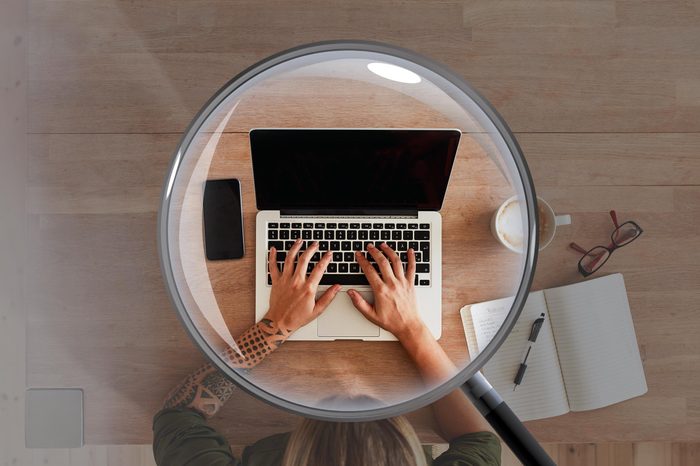With more and more items connecting to the Internet, it's easier than ever for hackers to gain access.
8 Things in Your Home That Could Be Spying on You
Laptop
In 2014, the FBI and other countries’ law enforcement teams busted more than a dozen hackers for using Blackshades software, which could, among other things, activate laptop cameras to spy on the victims. The program infected half a million computers, and at least one hacker blackmailed his victims—notably, 2013’s Teen Miss USA Cassidy Wolf—by threatening to publicize video he’d taken without their knowledge. Find out the effective way you can stop hackers from spying through your laptop.
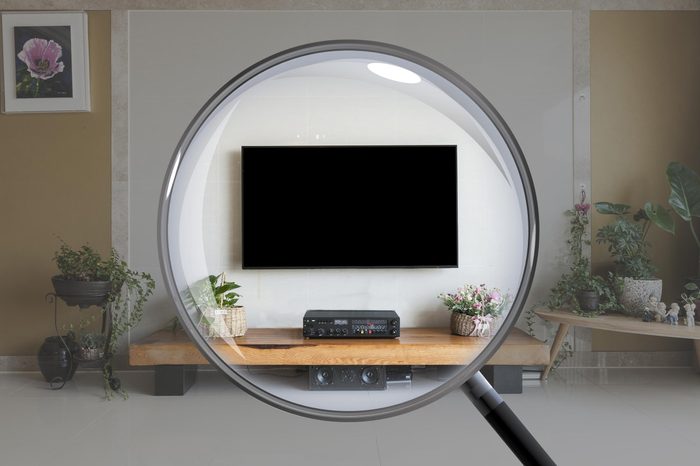
Smart TV
Security research firm ReVuln found a vulnerability in Samsung Smart TVs in 2012 that could open the door for hackers to access files on connected USBs, plus get total control to see and adjust settings on the TV itself. Given that Samsung’s TVs paired video face recognition with audio recordings, security experts feared the TVs—and hackers—could record families when they didn’t intend. And it wasn’t just whistleblowers. In 2017, files published on Wikileaks alleged that the CIA and its British counterpart MI5 developed malware called Weeping Angel that could record audio when the TV appeared to be off, and the team was trying to add video to its capabilities. It doesn’t mean the government is spying on innocent binge watchers, but the implications of vulnerable TVs are disconcerting. Learn about the other surprising places you didn’t know had hidden cameras.
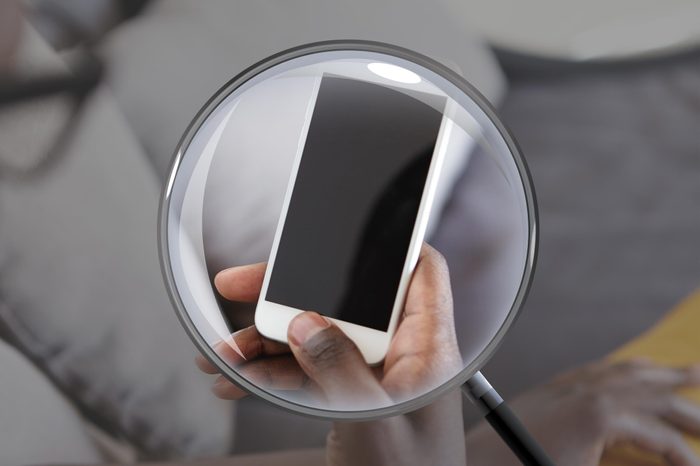
Phone
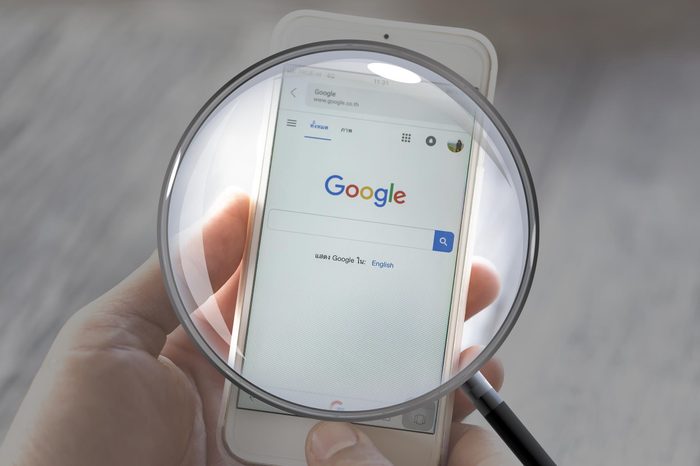
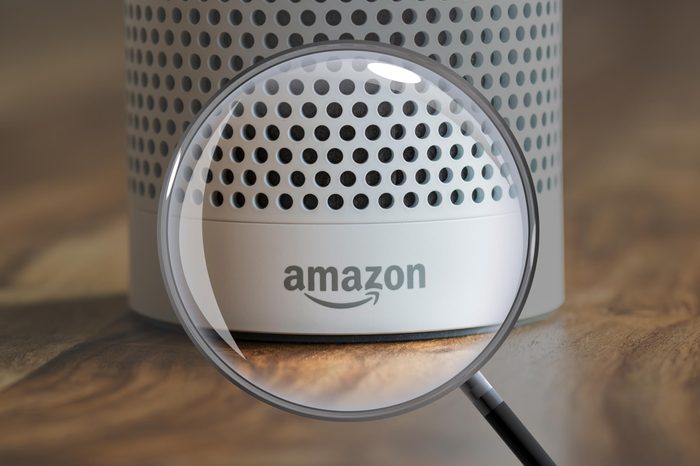
Voice assistants
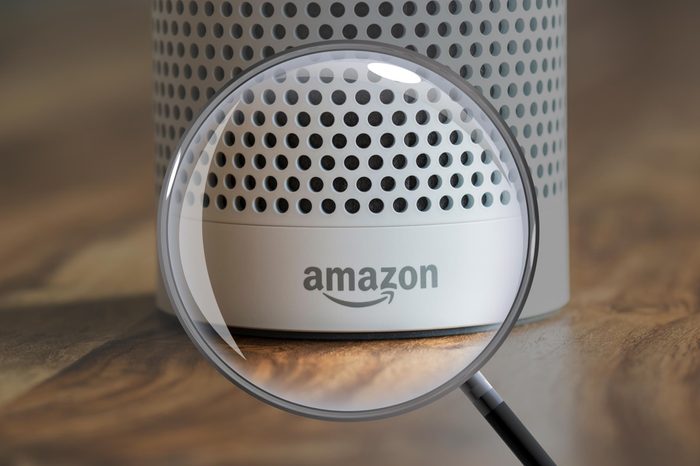
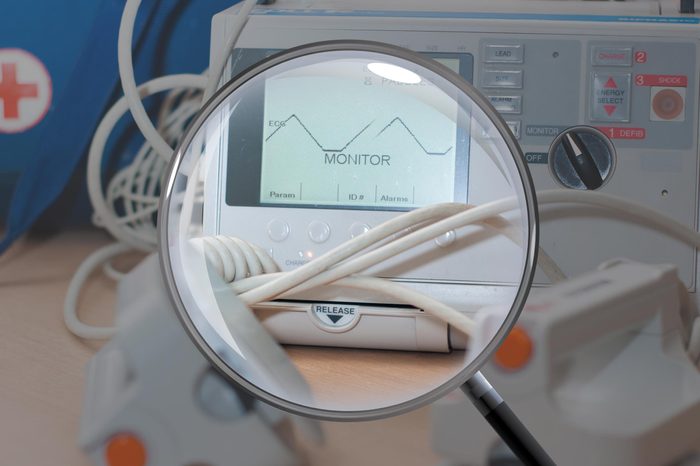
Health devices
In 2016, a threat intelligence analyst who has diabetes revealed he’d found a way to take control of insulin pumps from half a mile away, then adjust the insulin and potentially kill the victim. The next year, the FDA announced St. Jude Medical’s cardiac devices, including pacemakers and defibrillators, could be hacked. St. Jude initially denied the claims, which first came out in 2016, then patched the vulnerability after the FDA confirmation. No patients were harmed from the St. Jude’s vulnerability, either, but the cases show the importance of creating security measures.
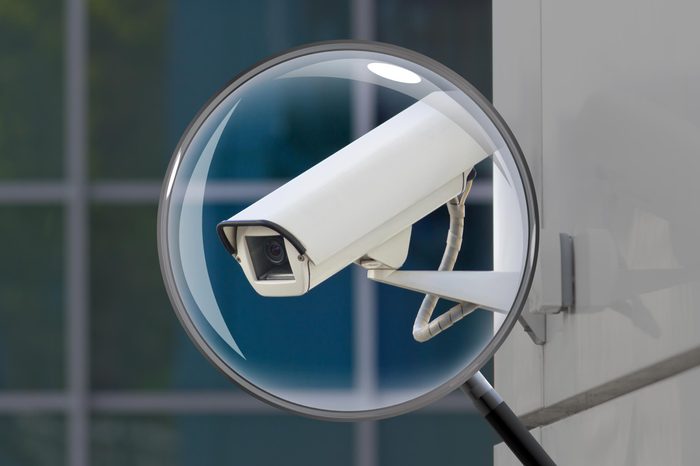
Security cameras
Ironically, a home security camera could be an entryway for hackers to spy on you. A researcher at security company Sophos released a video showing a program that could guess a CCTV password in less than a minute, not only sending the video stream to his own computer, but giving him full control over where the camera points. He points out that most people don’t change their passwords, so the hacker can easily keep spying on you. Using a strong password and changing it often can ward off a cyber attack.
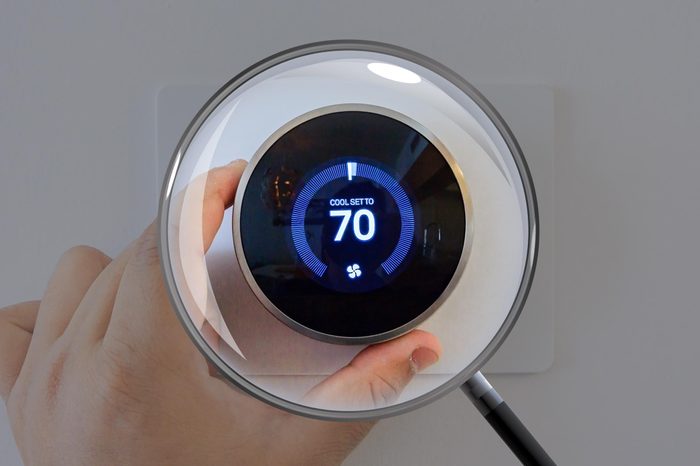
Thermostat
Spies might not care about the temperature of your home, but they could have an interest in your HVAC system. Experts blamed the infamous 2013 Target hack on its heating and cooling system. The Internet-connected temperature controls allowed an entry point for hackers who made their way to 40 million shoppers’ debit and credit cards. By 2016, security researchers found a way to hack into web-connected smart thermostats, lock its controls, and leave a ransom note. Don’t miss these other 21 things a burglar won’t tell you.
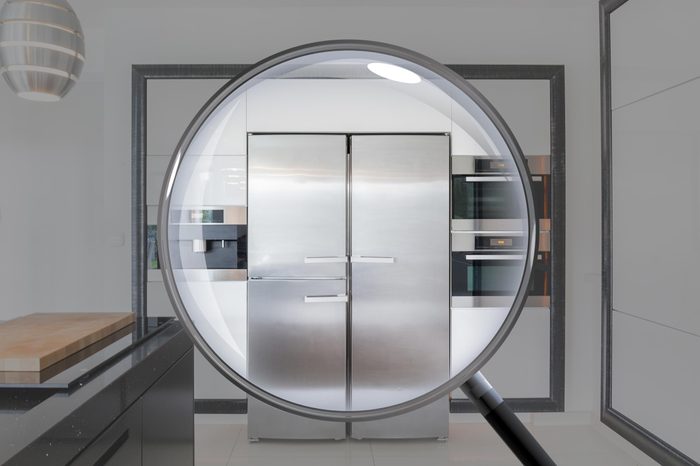
Refrigerator, dishwasher, coffee machine …
With the so-called Internet of things, countless other everyday objects are connected to the web. The idea is to make life easier—for instance, fridges that keep track of your family schedule and the food you’re out of— but they also open the door to let watchful eyes in. In 2012, then-CIA director David Petraeus discussed the “transformational” potential of hacking into Internet-connected household objects to spy on persons of interest. Next, find out the hiding spots burglars always look first.



















